This article was medically reviewed by Luba Lee, FNP-BC, MS. Luba Lee, FNP-BC is a Board-Certified Family Nurse Practitioner (FNP) and educator in Tennessee with over a decade of clinical experience. Luba has certifications in Pediatric Advanced Life Support (PALS), Emergency Medicine, Advanced Cardiac Life Support (ACLS), Team Building, and Critical Care Nursing. She received her Master of Science in Nursing (MSN) from the University of Tennessee in 2006.
There are 27 references cited in this article, which can be found at the bottom of the page.
This article has been viewed 14,129 times.
Mouth ulcers can be a real pain, literally! The most common are simple canker sores, which are small, white lesions caused by irritation. Cold sores and thrush, caused by infections, can also develop into ulcers. To help prevent mouth ulcers, deal with any dental issues that could be causing the problem, as well as triggers like stress or certain foods. If your ulcers linger or you suspect an underlying condition may be to blame, you should visit your doctor for treatment.
Steps
Dealing with Dental Issues
-
1Pick a toothpaste that doesn't contain sodium lauryl sulphate. In some people, this ingredient triggers chronic mouth ulcers. You may be able to prevent future ulcers just by swapping your current toothpaste out for a different brand.[1]
- Make sure to read the ingredient list before purchasing a toothpaste!
-
2Opt for a soft-bristled toothbrush. Sometimes, just brushing your teeth with a toothbrush that's too hard can lead to irritation. In turn, you're more susceptible to mouth ulcers. When buying a toothbrush, look for one that says "soft" or "soft bristles" to help protect your gums from this irritation.[2]
- Similarly, be gentle when brushing your teeth. Don't brush your gums at all. Use soft, short strokes on your teeth.[3]
Advertisement -
3Practice good mouth hygiene by brushing and flossing regularly. Brush your teeth after meals, or at least twice a day, and floss at least once per day. Remember to brush all sides of your teeth and to brush your tongue to remove bacteria.[4]
- Using an antimicrobial mouthwash can also improve your mouth hygiene.
-
4Talk to your dentist if your dentures don't fit well. If your dentures aren't fitting right, it's important to ask your dentist if they can make any adjustments. Whether you've had your dentures a long time or just a short period, they should fit well without causing ulcers in your mouth.
- When dentures are ill-fitting, they can rub on places in your mouth. Over time, that can lead to painful mouth ulcers, making your dentures difficult to wear.
- While you can use denture cream to help your dentures stay in place, it won't work if your dentures aren't fitting properly.
- Changes in your body weight can make your dentures fit differently, so that can be the cause if you've had your dentures for a long time.
- You can also take breaks from your dentures. Put them in water or a denture solution for up to 4 hours a day.
-
5See the dentist for a sharp, chipped tooth. If you've broken or chipped a tooth, it can leave a sharp edge that causes ulcers. Only a dentist can fix this issue, so see one as soon as possible.[5]
- The dentist may just need to file the edge off, a fix that's not too expensive. However, if it's cracked all the way down, you may need a root canal or other extensive dentistry, which can be expensive.
- Until you get in to see a dentist, you can put dental wax or even a small piece of sugarless gum over the tooth. That will keep the sharp edge from cutting into your gums or cheek.
Eliminating Triggers
-
1Take food triggers out of your diet one-by-one. For some people, certain foods may trigger mouth ulcers. These foods can include wheat flour, tomatoes, spicy foods, chocolate, peanuts, almonds, cheese, coffee, and strawberries. Try taking these out one at a time, aiming for 2 weeks at a time, to see if it provides you with some relief.[6]
- Alternatively, try taking them all out at once, then adding them back in one-by-one to see if any of them give you ulcers.
- Also, avoid any food that seems to irritate your mouth, such as acidic foods, chips, pretzels, and even nuts or certain spices.[7]
-
2Manage your stress and anxiety. Being stressed out can be a trigger for mouth ulcers, just like it can cause many other physical symptoms. Of course, it's nearly impossible to live a stress-free life, but you should try to find ways to manage your stress so it doesn't take over. Try to eliminate stressors when possible. For example, if you get stressed out in the morning watching the news, skip it or try reading a short summary instead. If baking stresses you out, buy baked goods for that bake sale or kid's party. [8]
- For instance, try yoga or meditation, which help you de-stress from your anxieties. It can also be beneficial to eat a balanced diet and exercise regularly.[9]
- Deep breathing techniques may also help when you get stressed. Close your eyes, and breathe in deeply to the count of 4 through your nose. Hold the breath for 4 counts and then breathe out through your mouth to the count of 4. As you continue this breathing, try to clear your head completely and just focus on your body. Repeat until you feel yourself calm down.[10]
- If stress is taking over your life, try talking to a therapist. You could also talk to your doctor about the possibility of taking anxiety medications.
-
3Get a good night’s sleep. Just like being stressed out, not getting enough sleep can trigger mouth ulcers. Everyone needs a slightly different amount of sleep, but most healthy adults need 7 to 9 hours of sleep per night. Teenagers need 8-11 hours each night, while children should get 10-13 hours of sleep each night.[11]
- If you have trouble sleeping, try staying away from screens for at least an hour before bed.
-
4Eat a healthy diet filled with fruits and vegetables. Aim to fill half your plate with fruits and veggies every time you eat. Opt for whole grains at most meals, which are high in nutrients and fiber. Getting a wide variety of fruits, vegetables, and whole grains in your diet will help insure you don't have a vitamin deficiency causing your mouth ulcers.[12]
- If you have a vitamin deficiency, consider taking a dietary supplement with iron, zinc, or vitamins B1, B2, B6, B12, or C, depending on which vitamins you don’t get regularly in your diet.[13]
-
5Chew slowly to avoid biting the inside of your mouth. Everyone bites their cheek or tongue once in awhile! However, if you do this regularly, it could be causing your ulcers. Try to take your time when chewing to see if that helps. Slow down when eating and cut your food into smaller bites.[14]
- If you chew your cheek when you're anxious, try to be more aware of this behavior and stop yourself when you're doing it. Reduce your anxiety when possible and use relaxation techniques to help.[15]
-
6Stop smoking if you use tobacco products. If you're looking for a reason to quit, here's another one: smoking can increase your chances of mouth ulcers. Talk to your doctor about quitting, and they can help you get on the patch or nicotine pill, which may make stopping easier.[16]
- Consider joining a support group for people who are trying to quit.
- Let your friends and family know you're trying to quit so they can help you make better decisions.
- Try to find activities to replace smoking. For example, if you normally smoke after dinner, try taking a walk instead.
Managing Symptoms at Home
-
1Leave an ulcer be if it’s a minor canker sore. A minor canker sore is usually small, oval shaped with a red edge and are annoying, but not intensely painful. Most minor canker sores clear up on their own in about a week or two, so you don’t need to do anything about it. However, if it’s a painful, recurring ulcer, you should see doctor for help.[17]
- If the sore extends into the lips, you’ll also want to see a doctor.[18]
-
2Rinse your mouth with salt and warm water. Warm up a cup of water in the microwave until it is warm, but not hot. Add ½ a teaspoon of salt to the water and let it dissolve. Then, swish the warm water around your mouth for 10 to 12 seconds and spit it out. Be sure not to swallow the saltwater-- not only does it taste bad, but it can be dehydrating.[19]
- Don’t use a salt rinse more than 3 or 4 times a week.[20]
-
3Try an antimicrobial mouthwash to speed up healing. You can find antimicrobial mouthwashes at drugstores and pharmacies. Children under two shouldn't use this treatment. Antimicrobial mouthwashes can also prevent an ulcer you already have from getting infected.[21]
- These mouthwashes can stain your teeth, but the staining might go away after treatment.
- If a mouthwash worsens your symptoms, stop using it right away.
- If you prefer natural remedies, you can try a natural mouthwash with tea tree oil and warm water.
-
4Take pain-relieving medicine, like acetaminophen. If your mouth ulcers are giving you a lot of pain, you don’t just have to suffer. Acetaminophen is a painkiller that treats minor aches and pains. Yo can buy it over-the-counter. Look for brand names of acetaminophen like Tylenol, Disprol, Hedex, Medinol, Panadol.[22]
- Make sure to read the directions on the package to determine the proper dosage for you.
-
5Cool your mouth with ice chips to reduce pain and swelling. Allow ice chips to slowly dissolve over the sores in your mouth. You can also eat cold food, like popsicles, frozen yogurt, or ice cream, to have the same numbing effect.[23]
- However, if the cold food makes your ulcers feel worse, you should stop.
-
6Use a straw when drinking to reduce pain. If drinking tends to sting and exacerbate your mouth ulcers, using a straw can help you direct liquid away from the area of your mouth with the ulcer. It’s important to stay hydrated and keep your mouth clean, so you shouldn’t cut out drinking just because it hurts.[24]
- Many people particularly have trouble with cool drinks, so have a straw on hand for your chilled juices and water.[25]
Seeing a Doctor
-
1Visit the doctor if any ulcer lasts more than 2 weeks. Even if you think your ulcer is just a canker sore, it's still a good idea to go to the doctor if it lingers, or you have ulcers that keep happening over and over again. It's possible your sores could be a sign of another condition, which your doctor can help diagnose.[26]
- For example, ulcers can be signs of diseases like celiac disease, Crohn's disease, or reactive arthritis.[27]
-
2Request an anti-fungal medication from your doctor for a thrush infection. Thrush is a fungal infection which may lead to multiple lesions in your mouth. They may be slightly raised with an appearance like cottage cheese. They may even bleed or cause severe pain. Your doctor can prescribe an anti-fungal medication to treat thrush.[28]
- You may also notice cracking at the corner of your lips or a cottony feeling in your mouth.
-
3Discuss the possibility of an anti-viral medication for frequent cold sores. Cold sores are a result of the herpes simplex virus. Typically, these are small blisters that burst on the outside of your mouth, but you can get them inside your mouth as well. While they usually clear up on their own, if you have them often or they don't seem to go away, your doctor may prescribe an anti-viral medication.[29]
- This virus is passed from person-to-person with close contact, such as kissing or oral sex.
-
4Go to the doctor if your ulcers worsen or cause a fever. If your ulcers start out mildly painful but become increasingly more so, you should see your doctor. Also, if they change from white to red, make a doctor's appointment. Both of these symptoms could indicate you have a bacterial infection that needs antibiotics to treat it.[30]
- If you have a high fever of 103 °F (39 °C) accompanying your mouth sores, that could also be a sign of bacterial infection.[31]
-
5Ask to have blood tests run for recurring mouth ulcers. Ulcers can also be a sign of a nutrient deficiency, most commonly vitamin B12 or iron. A blood test can tell you whether you need more of these in your diet.[32] A lack of zinc or folate may also be to blame.[33]
- If this is the problem, your doctor will likely recommend a supplement.
References
- ↑ https://www.nhsinform.scot/illnesses-and-conditions/mouth/mouth-ulcer
- ↑ https://www.nhsinform.scot/illnesses-and-conditions/mouth/mouth-ulcer
- ↑ https://www.mouthhealthy.org/en/az-topics/b/brushing-your-teeth
- ↑ https://dentistry.uic.edu/patients/oral-hygiene
- ↑ https://www.authoritydental.org/teeth-chipping
- ↑ https://www.nhsinform.scot/illnesses-and-conditions/mouth/mouth-ulcer
- ↑ https://www.mayoclinic.org/diseases-conditions/canker-sore/symptoms-causes/syc-20370615
- ↑ https://www.nhsinform.scot/illnesses-and-conditions/mouth/mouth-ulcer
- ↑ https://www.psychology.org.au/for-the-public/Psychology-Topics/Anxiety?Redirected=true
- ↑ https://www.helpguide.org/articles/anxiety/how-to-stop-worrying.htm
- ↑ https://www.helpguide.org/articles/sleep/sleep-needs-get-the-sleep-you-need.htm
- ↑ https://www.mayoclinic.org/diseases-conditions/canker-sore/symptoms-causes/syc-20370615
- ↑ https://www.ncbi.nlm.nih.gov/books/NBK431059/
- ↑ https://www.nhs.uk/conditions/mouth-ulcers/
- ↑ https://www.goodtherapy.org/blog/ever-wondered-why-you-bite-the-insides-of-your-cheeks-0630144
- ↑ https://www.cdc.gov/tobacco/data_statistics/fact_sheets/cessation/quitting/index.htm
- ↑ https://www.nhsinform.scot/illnesses-and-conditions/mouth/mouth-ulcer
- ↑ https://www.mayoclinic.org/diseases-conditions/canker-sore/symptoms-causes/syc-20370615
- ↑ https://www.bbc.co.uk/programmes/articles/58BGqx1Q3Cdw0MTyMxBDhl1/how-do-i-treat-a-mouth-ulcer
- ↑ https://www.guardiandirect.com/dental-care/how-saltwater-rinse-improve-your-oral-health
- ↑ https://www.nhsinform.scot/illnesses-and-conditions/mouth/mouth-ulcer
- ↑ https://www.betterhealth.vic.gov.au/health/conditionsandtreatments/mouth-ulcers
- ↑ https://www.mayoclinic.org/diseases-conditions/canker-sore/diagnosis-treatment/drc-20370620
- ↑ https://www.mayoclinic.org/diseases-conditions/cancer/in-depth/mouth-sores/art-20045486
- ↑ https://www.nhsinform.scot/illnesses-and-conditions/mouth/mouth-ulcer
- ↑ https://www.mayoclinic.org/diseases-conditions/canker-sore/symptoms-causes/syc-20370615
- ↑ https://www.nidirect.gov.uk/conditions/mouth-ulcers
- ↑ https://www.mayoclinic.org/diseases-conditions/oral-thrush/symptoms-causes/syc-20353533
- ↑ https://www.mayoclinic.org/diseases-conditions/cold-sore/symptoms-causes/syc-20371017
- ↑ https://www.nidirect.gov.uk/conditions/mouth-ulcers
- ↑ https://www.mayoclinic.org/diseases-conditions/canker-sore/symptoms-causes/syc-20370615
- ↑ https://www.nidirect.gov.uk/conditions/mouth-ulcers
- ↑ https://www.mayoclinic.org/diseases-conditions/canker-sore/symptoms-causes/syc-20370615

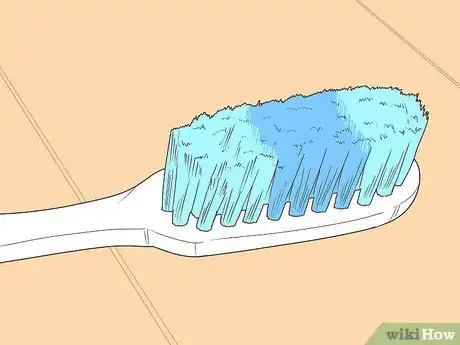
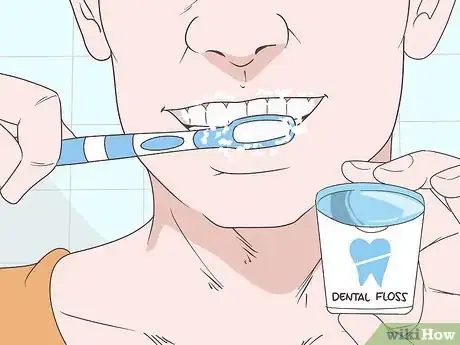
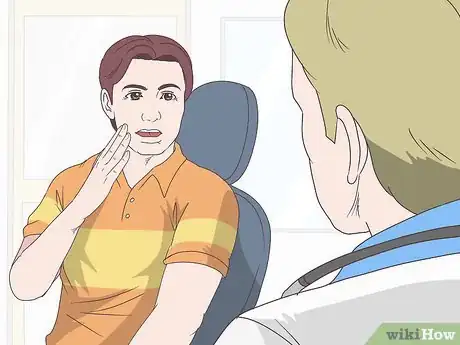
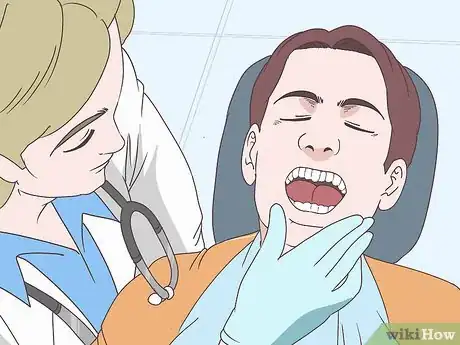
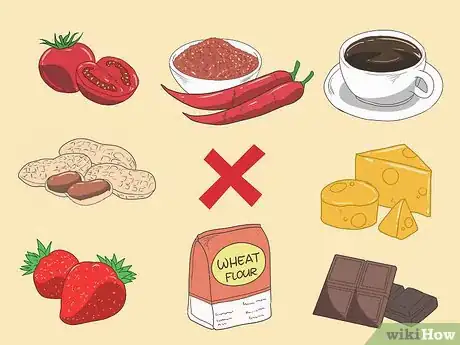


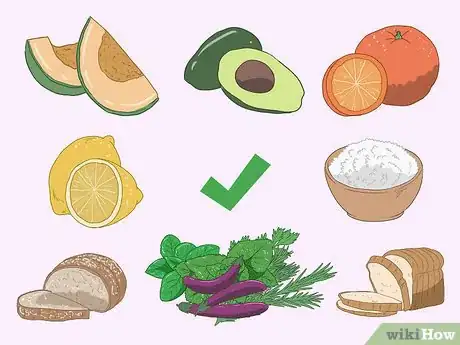
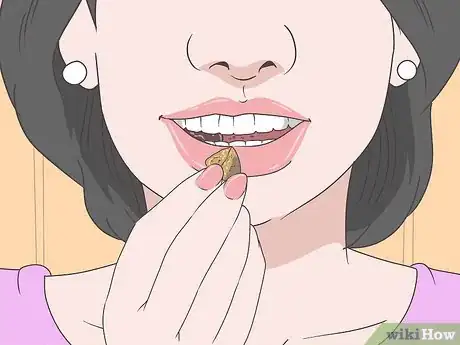

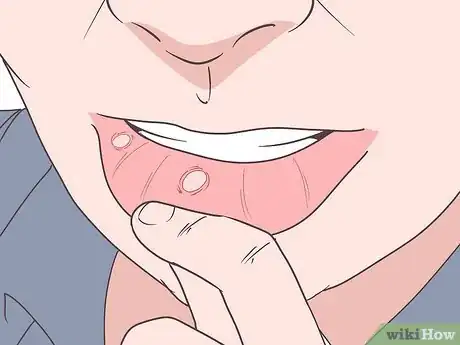
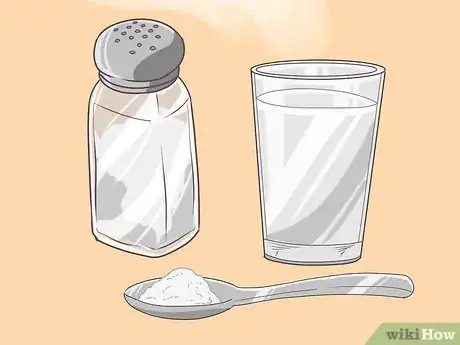
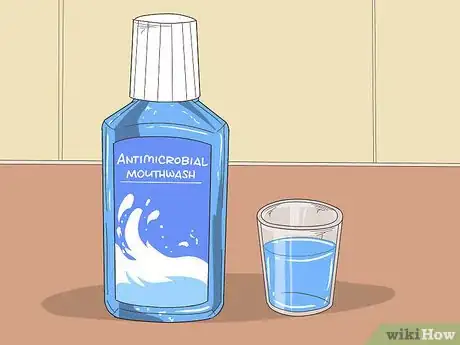
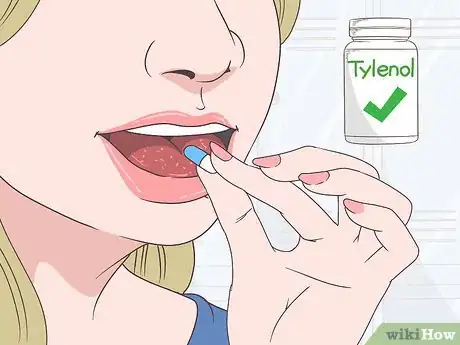
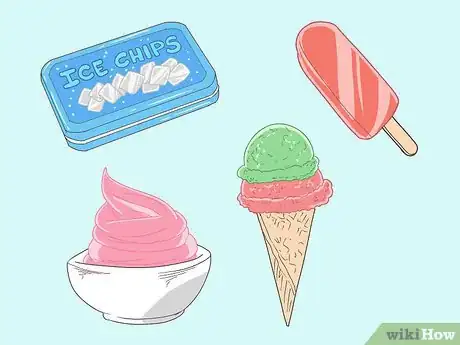


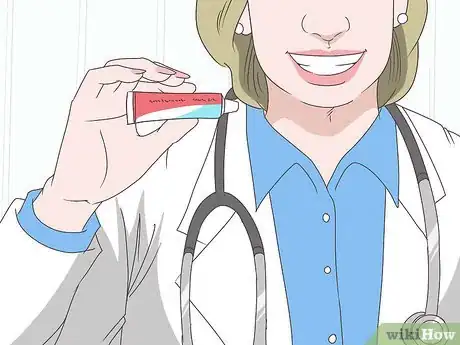

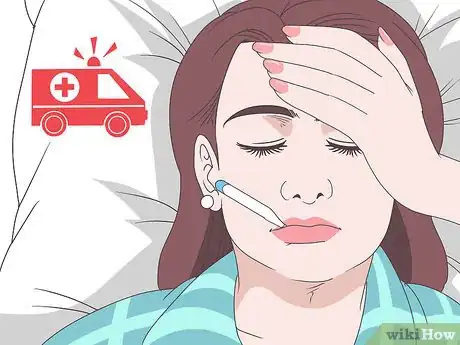
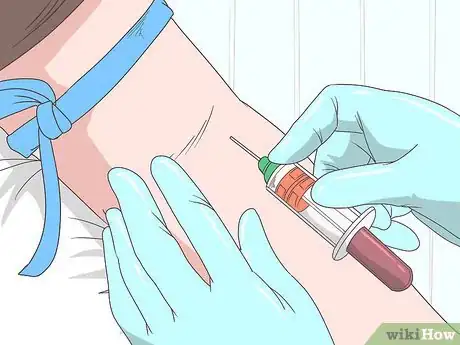
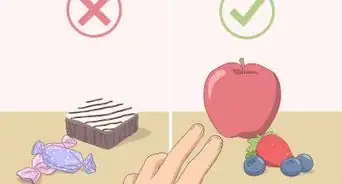




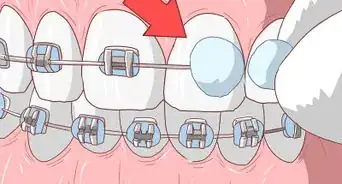
-Step-22.webp)














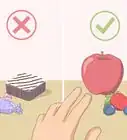






































Medical Disclaimer
The content of this article is not intended to be a substitute for professional medical advice, examination, diagnosis, or treatment. You should always contact your doctor or other qualified healthcare professional before starting, changing, or stopping any kind of health treatment.
Read More...